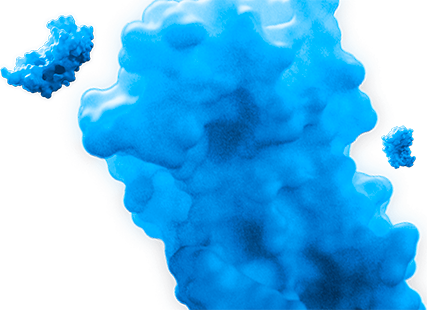Important Safety Information
Do not take BETASERON® (interferon beta-1b) if you are allergic to interferon beta-1b, to another interferon beta, to human albumin, or mannitol. See additional Important Safety Information below.
For Healthcare Professionals Only
ButtonTo access the professional site for information about BETASERON® (interferon beta-1b) please confirm that you are a healthcare professional.
You will only be prompted once per visit to the website.
To visit the global (BRAND) website, please choose from the options below:


See the Data in Special Populations
*Although there have been no well-controlled studies, observational studies have not generally indicated a drug-associated risk of major birth defects with interferon beta-1b during pregnancy.1
†Data from an observational study.
Models used for illustrative purposes only.
Indications
BETASERON® (interferon beta-1b) is a prescription medicine used to treat relapsing forms of multiple sclerosis (MS), to include clinically isolated syndrome, relapsing-remitting disease, and active secondary progressive disease, in adults.
Get your patients started on BETASERON
BETACONNECT™
First and only electronic autoinjector for relapsing forms of MS
Available at no cost
BETA track™
Patients can track then share their injection data
Financial Support
$0 copay, up to maximum program benefit or patient total program benefit. Program benefits are determined by the type of plan coverage you have. Benefit, rules, and maximum limitations apply.
Reference: 1. BETASERON. Prescribing Information. Bayer HealthCare Pharmaceuticals Inc.; 2023.
Please see the Full Prescribing Information, BETACONNECT™ Instructions for Use and myBETAapp™ Instructions for Use for additional information, and talk to your healthcare provider.
XSub Heading Text
INDICATIONS
BETASERON® (interferon beta-1b) is a prescription medicine used to treat relapsing forms of multiple sclerosis (MS), to include clinically isolated syndrome, relapsing-remitting disease, and active secondary progressive disease, in adults.
IMPORTANT SAFETY INFORMATION
Do not take BETASERON (interferon beta-1b) if you are allergic to interferon beta-1b, to another interferon beta, to human albumin, or mannitol.
BETASERON can cause serious side effects, including:
Liver Problems Including Liver Failure. Symptoms of liver problems may include yellowing of your eyes, itchy skin, feeling very tired, flu-like symptoms, nausea or vomiting, bruising easily or bleeding problems. Your healthcare provider will do blood tests to check for these problems while you take BETASERON.
Serious Allergic Reactions. Serious allergic reactions can happen quickly and may happen after your first dose of BETASERON or after you have taken BETASERON many times. Symptoms may include difficulty breathing or swallowing, swelling of the mouth or tongue, rash, itching, or skin bumps.
Depression or Suicidal Thoughts. Call your healthcare provider right away if you have any of the following symptoms, especially if they are new, worse or worry you: thoughts about suicide or dying, new or worse depression (sinking feeling or sadness), new or worse anxiety (feeling uneasy, nervous or fearful for no reason), trouble sleeping (insomnia), acting aggressive, being angry, or violent, acting on dangerous impulses, hallucinations, other unusual changes in behavior or mood.
Other possible serious side effects with BETASERON include:
Heart Problems. BETASERON may worsen heart problems including congestive heart failure. Symptoms of heart problems may include swollen ankles, shortness of breath, decreased ability to exercise, fast heartbeat, tightness in chest, increased need to urinate at night, not being able to lay flat in bed.
Injection Site Problems. Serious skin reactions can happen in some people including areas of severe damage to skin and the tissue below the skin (necrosis). These reactions can happen anywhere you inject BETASERON. Symptoms of injection site problems may include swelling, redness, or pain at the injection site, fluid drainage from the injection site, and breaks in your skin or blue-black skin discoloration. Call your healthcare provider right away if an injection site becomes swollen and painful or the area looks infected. You may have a skin infection or an area of severe skin damage (necrosis) requiring treatment by a healthcare provider.
Pulmonary Arterial Hypertension. Pulmonary arterial hypertension can occur with interferon beta products, including BETASERON. Symptoms may include new or increasing fatigue or shortness of breath. Contact your healthcare provider right away if you develop these symptoms.
Flu-like Symptoms. BETASERON can cause flu-like symptoms including fever, chills, tiredness, sweating, muscle aches when you first start to use it. These symptoms may decrease over time. Taking medicines for fever and pain relief on the days you are using BETASERON may help decrease these symptoms.
Seizures. Some people have had seizures while taking BETASERON, including people who have never had seizures before. It is not known if the seizures were related to MS, to BETASERON, or to a combination of both. If you have a seizure after taking BETASERON call your healthcare provider right away.
Blood Problems. You may have a drop in the levels of infection-fighting white blood cells, red blood cells, or cells that help you form blood clots. If drops in levels are severe, they can lessen your ability to fight infections, make you feel tired or sluggish or cause you to bruise or bleed easily.
Pregnancy:
Tell your doctor if you are pregnant or plan to become pregnant.
Most Common Side Effects:
The most common side effects of BETASERON include low white blood cell count, increases in your liver enzymes, headache, increase in your muscle tension, pain, rash, problems sleeping, stomach pain, weakness. These are not all the possible side effects of BETASERON.
Tell your healthcare provider if you have any side effect that bothers you or that does not go away. Tell your healthcare provider about all the medicines you take and your medical conditions.
Please see the Full Prescribing Information and BETACONNECT™ Instructions for Use for additional information, and talk to your healthcare provider.
IMPORTANT SAFETY INFORMATION
Contraindications. BETASERON (interferon beta-1b) is contraindicated in patients with a history of hypersensitivity to natural or recombinant interferon beta, Albumin (Human), mannitol, or any other component of the formulation.
Hepatic Injury. Severe hepatic injury including cases of hepatic failure has been rarely reported in patients taking BETASERON. In some cases, these events have occurred in the presence of other drugs or comorbid medical conditions that have been associated with hepatic injury. Consider the potential risk of BETASERON used in combination with known hepatotoxic drugs or other products (e.g., alcohol) prior to BETASERON administration, or when adding new agents to the regimen of patients already on BETASERON. Monitor patients for signs and symptoms of hepatic injury. Consider discontinuing BETASERON if serum transaminase levels significantly increase, or if they are associated with clinical symptoms such as jaundice.
Asymptomatic elevation of serum transaminases is common in patients treated with BETASERON. In controlled clinical trials, elevations of SGPT to greater than five times baseline value were reported in 12% of patients receiving BETASERON (compared to 4% on placebo), and increases of SGOT to greater than five times baseline value were reported in 4% of patients receiving BETASERON (compared to 1% on placebo), leading to dose-reduction or discontinuation of treatment in some patients. Monitor liver function tests.
Anaphylaxis and Other Allergic-Reactions. Anaphylaxis has been reported as a rare complication of BETASERON use. Other allergic reactions have included dyspnea, bronchospasm, tongue edema, skin rash and urticaria.
Discontinue BETASERON if anaphylaxis occurs.
Depression and Suicide. Depression and suicide have been reported to occur with increased frequency in patients receiving interferon compounds, including BETASERON. Patients treated with BETASERON should be advised to report immediately any symptoms of depression and/or suicidal ideation. Consider discontinuation of BETASERON if depression occurs.
Congestive Heart Failure. Monitor patients with pre-existing congestive heart failure (CHF) for worsening of their cardiac condition during initiation of and continued treatment with BETASERON. Cases of CHF, cardiomyopathy, and cardiomyopathy with CHF have been reported in patients without known predisposition to these events, and without other known etiologies being established. In some cases, these events have been temporally related to the administration of BETASERON. Recurrence upon rechallenge was observed in some patients. Consider discontinuation of BETASERON if worsening of CHF occurs with no other etiology.
Injection Site Necrosis and Reactions. Injection site reactions occurred in 78% of BETASERON patients receiving BETASERON (compared to 26% on placebo) in controlled clinical trials with injection site necrosis reported in 4% of BETASERON patients (compared to 0% on placebo). For patients who continue BETASERON after injection site necrosis has occurred, BETASERON should not be administered into the affected area until it is fully healed. If multiple lesions occur, therapy should be discontinued until healing occurs. Patients should be advised of the importance of the use of aseptic technique and rotating injection sites.
Leukopenia. Leukopenia has been reported in 18% of patients receiving BETASERON (compared to 6% on placebo) in controlled clinical trials leading to a reduction in dose in some patients. Monitoring of complete blood and differential white blood cell counts is recommended. Patients with myelosuppression may require more intensive monitoring.
Thrombotic Microangiopathy. Cases of thrombotic microangiopathy (TMA), including thrombotic thrombocytopenic purpura and hemolytic uremic syndrome, some fatal, have been reported several weeks to years after starting interferon beta products. Discontinue BETASERON if clinical symptoms and laboratory findings consistent with TMA occur, and manage as clinically indicated.
Flu-like Symptom Complex. Flu-like symptom complex for patients on BETASERON was 57% (versus 37% on placebo) in controlled clinical trials. Analgesics and/or antipyretics on treatment days may help ameliorate flu-like symptoms.
Seizures. Seizures have been temporally associated with the use of beta interferons.
Drug-induced Lupus Erythematosus. Drug-induced lupus erythematosus has been reported with interferon beta products, including BETASERON. Signs and symptoms of drug-induced lupus reported in BETASERON-treated patients have included rash, serositis, polyarthritis, nephritis, and Raynaud's phenomenon. Cases have occurred with positive serologic testing (positive anti-nuclear and/or anti-double-stranded DNA antibody testing). If patients develop new signs and symptoms of this syndrome, BETASERON therapy should be stopped.
Monitoring for Laboratory Abnormalities. In addition to those laboratory tests normally required for monitoring patients with multiple sclerosis, complete blood and differential white blood cell counts, platelet counts and blood chemistries including liver function tests are recommended at one, three and six months after introduction of BETASERON therapy, and periodically thereafter in the absence of clinical symptoms.
Most Common Adverse Reactions. The most commonly reported adverse reactions (at least 5% more frequent on BETASERON than on placebo) in controlled clinical trials were injection site reaction (78% vs 26% for placebo), lymphopenia (86% vs 66%), flu-like symptoms (57% vs 37%), myalgia (23% vs 14%), leukopenia (13% vs 4%), neutropenia (13% vs 5%), increased liver enzymes (SGPT to greater than five times baseline value [12% vs 4%], SGOT to greater than five times baseline value [4% vs 1%]), headache (50% vs 43%), hypertonia (40% vs 33%), pain (42% vs 35%), rash (21% vs 15%), insomnia (21% vs 16%), abdominal pain (16% vs 11%), and asthenia (53% vs 48%).
Please see the Full Prescribing Information and BETACONNECT™ Instructions for Use for additional information, and talk to your healthcare provider.
You are encouraged to report side effects or quality complaints of products to the FDA by visiting www.fda.gov/medwatch or calling 1-800-FDA-1088. For Bayer products, you can report these directly to Bayer by clicking here.
BAYER, the Bayer Cross, BETASERON are registered trademarks of Bayer. BETACONNECT and BETA track are trademarks of Bayer. Other trademarks and trade names are those of their respective owners. Apple, Apple Mac, App Store, iCloud, iPad, iPhone, iPod touch, and iTunes are registered trademarks of Apple Inc., registered in the U.S. and other countries. Google Play is a trademark of Google LLC. Use of the trademark is subject to Google Permissions. Windows is a registered trademark of Microsoft Corporation. MixJect® is a registered trademark of Medimop Medical Projects, Ltd., a subsidiary of West Pharmaceutical Services, Inc. These trademark owners are not affiliated with Bayer and do not sponsor or endorse Bayer or this product.
© 2025 Bayer. All rights reserved.
Site Last Modified: 12/2025





